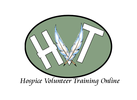Today we are in Tennessee, about to hold our second annual Nashville Fearless Caregiver Conference. I am looking forward to once again seeing our partners at the Greater Nashville Regional Council Area Agency on Aging, talking with Clay Walker and Steve Moses, and meeting new friends and caregivers during the day. If this conference is anything like the previous 91 events, there will be tons of laughter, tears and in-depth conversations about crucial topics such as long-term care, care management, respite and hospice.
One of the greatest challenges new family caregivers face is that our preparation for joining our loved one�s care team traditionally begins with a middle-of-the-night emergency phone call. Almost immediately upon hanging up the receiver, we need to thoroughly understand everything about the kinds of services I just mentioned.
Yet, in the case of hospice care, so many times the ones in need of education turn out to be our doctors. I actually do understand the conflict that some doctors feel in regard to recommending hospice care. They may think of it as a personal failure or a surrender of their duties to heal their patients. In fact, nothing could be further from the truth; when hospice is required, it can be the best medicine possible for their patients. Yet, there is one more step necessary for our doctors to consider when hospice care is the right diagnosis and that is to not abandon their patients and family members.
A study conducted last year by Anthony Back, a professor of medicine at the University of Washington, showed that there is more that needs to be done when hospice care is instituted. Back and his co-authors interviewed 31 doctors and 55 of their patients, all of whom had incurable cancer or advanced chronic obstructive pulmonary disease and were expected to die within a year. They also interviewed 36 family caregivers and 25 nurses. According to their study published in the Archives of Internal Medicine, abandonment was a significant issue to family caregivers and their loved ones.
This makes so much sense. The best relationship we have with our loved one�s doctors is when they act as our guide or Sherpa through the horror that can be the healthcare system. And it is at the end of this journey when the smallest act of kindness from them can mean the most. Although nobody is busier than today�s doctor, a phone call to a family member of a patient in hospice care can be the best medicine he or she can offer. And may just possibly bring a much needed sense of closure to them as well.
Gary Barg
Editor-in-Chief
gary@caregiver.com
Wednesday, March 10, 2010
The Smallest Kindness
via caregiver.com
Subscribe to:
Post Comments (Atom)






No comments:
Post a Comment